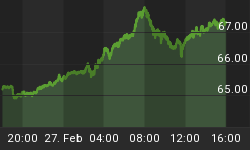Two weeks ago, hedge funds were selling off oil, taking their profits on an oil price rally that came about due to hopeful U.S.-China trade deal talks (disappointed again) and the sentiment that U.S. shale production will be slower next year and that OPEC will further cut production.
Now, they’re back into buying, and they’re playing the stability range.
Reuters columnist John Kemp noted that profit-taking the previous week had subsided, and last week had seen futures and options worth 144 million barrels of crude in six contracts.
All told, Kemp said, citing commodities records, six out of the past seven weeks have seen portfolio managers buying more heavily into crude. In total, they added over 290 million barrels to their portfolios during that period.
Last week saw 14 million barrels of gas scooped up, 7 million barrels of U.S. diesel and 17 million barrels of European gasoil, Reuters reported.
But the biggest news is that all those short positions hedge funds took up in September and October on the NYMEX WTI are closed out, according to Kemp.
We saw equities take a dive every day this week on Trump’s tweet that a trade war deal may be put on hold until after the 2020 elections. Oil, on the other hand, didn’t lose any ground; in fact, it rose slightly because of hedge fund activity.
Because prices have stabilized, more or less, the sentiment among hedge funds is that the range makes it possible for some producers to profit without resulting in a major increase in gas prices that would cripple consumer spending and harm economic growth. It’s a safe range, in other words. Related: The Crushing Reality Of Poverty In America
“More and more people are starting to believe things are getting better,” Nathan Thooft, head of global asset allocation at Manulife Investment Management, told WSJ. “An oil price that is climbing based on better sentiment is fine as long as it doesn’t get out of control...We have some room before it would cause any alarm bells to start ringing.”
What to keep an eye on?
December 15th is the deadline for Trump to decide whether to impose more tariffs on $160 billion in Chinse goods. This, in part, will signal whether there is any chance for even a partial trade deal prior in the near future, or whether it’s all off until after next year’s presidential elections.
Most importantly, sentiment will be dictated to some extent by OPEC’s bi-annual meeting in Vienna on Thursday this week, and there is a lot to consider, including any indications as to how the New Saudi energy minister could change up this game.
The previous Saudi energy minister, Khalid Al-Falih, has been replaced, and he was a strong proponent of price stabilization. The new energy minister--Prince Abdul Aziz bin Salman--is more of an MBS yes-man, and no one knows yet what is in store.
And there is another consideration, as well: The Saudi Aramco IPO doesn’t necessarily want lower oil prices, and the Aramco IPO pricing will be decided on Thursday, too. That’s one indication that things may go the way increasingly bullish hedge funds are hoping they will.
By Tom Kool of Oilprice.com
More Top Reads From Safehaven.com:
















